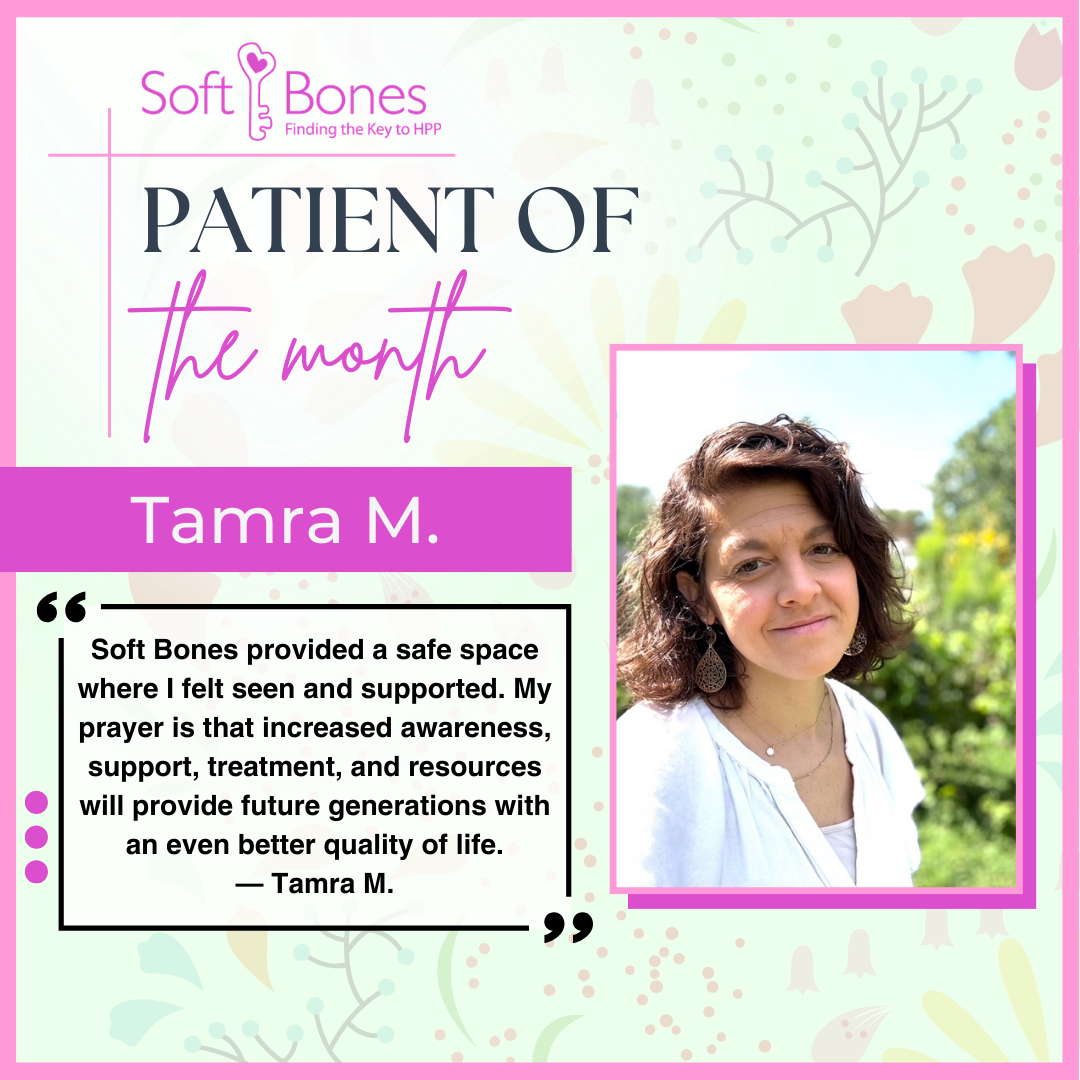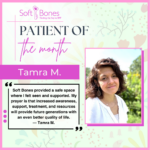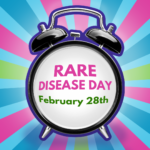Latest from
Soft Bones
What is
Hypophosphatasia?
What is
Hypophosphatasia?
Hypophosphatasia (hī-pō-ˌfäs-fə-ˈtā-zh(ē-)ə) or HPP is an inherited (genetic) metabolic disorder. People with this condition have low levels of the enzyme alkaline phosphatase (ALP), which often affects the development of bones and teeth.
Typically, the earlier HPP symptoms become apparent, the more severe the condition. It is estimated that severe forms of HPP occur in approximately one of every 100,000 live births. While exact numbers are unknown, it is estimated that one out of every 200 Americans may be a carrier for HPP.
Diagnosis is generally made through x-rays and blood tests and the disease is classified based on the age at which symptoms first appear. The five main types of HPP are: Odonto, Perinatal, Infantile, Childhood and Adult. Researchers understand HPP is a genetic condition of the TNSALP gene, which is part of a patient’s genetic makeup, regardless of when it is diagnosed. However, a genetic diagnosis is currently not an adequate predictor of severity of disease. More research is underway and funded by Soft Bones to gain a better understanding of the genotype/phenotype relationship.
For more information, please see our publications created by HPP experts and members of the Soft Bones Scientific Advisory Board.
Newly diagnosed?
Whether you are a parent, a family member or you yourself have been diagnosed with hypophosphatasia (HPP), you have come to the right place. A diagnosis of HPP can be overwhelming. You may feel confused and scared, but enzyme replacement therapy and ongoing research provide a greater understanding of this rare disease.
There is hope for you and your family.
Is your bloodwork showing you have low Alkaline Phosphatase or ALP?
If you received laboratory results that indicate low ALP, you are probably wondering what that means.
March’s Patient of the Month:
This month’s Patient of the Month spotlight features Tamra M.


Registration for the 2026 National Patient Meeting is Now Open!
Join us June 26-27 for an informative gathering where individuals and families affected by HPP can connect, share experiences, and learn directly from leading HPP experts. Check out our agenda for an overview of the planned events and speakers.
More Inspiring Stories
Soft Bones Statistics
Hypophosphatasia has been described as the bone disease with the greatest spectrum of severity.
Every case is different, even with people who have identical mutations. Learn more
A portion of the proceeds from your purchases will benefit Soft Bones.
Check out our ongoing and seasonal fundraisers. Happy shopping!







